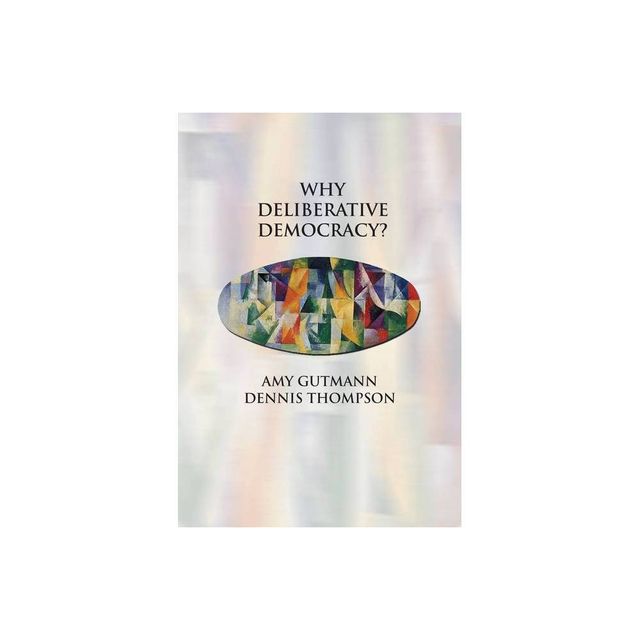Home
Reasoning, Argumentation, and Deliberative Democracy
Loading Inventory...
Barnes and Noble
Reasoning, Argumentation, and Deliberative Democracy
Current price: $180.00


Barnes and Noble
Reasoning, Argumentation, and Deliberative Democracy
Current price: $180.00
Loading Inventory...
Size: Hardcover
*Product Information may vary - to confirm product availability, pricing, and additional information please contact Barnes and Noble
In light of the latest research from cognitive and developmental psychology, this key text explores reasoning, rationality, and democracy, considering the unique nature of each and their relationship to each other.
Broadening our understanding from the development of reasoning and rationality in individuals to encompass social considerations of argumentation and democracy, the book connects psychological literature to philosophy, law, political science, and educational policy. Based on psychological research, Moshman sets out a system of deliberative democracy that promotes collaborative reasoning, rational institutions such as science and law, education aimed at the promotion of rationality, and intellectual freedom for all. Also including the biological bases of logic, metacognition, and collaborative reasoning, Moshman argues that, despite systematic flaws in human reasoning, there are reasons for a cautiously optimistic assessment of the potential for human rationality and the prospects for democracy.
Reasoning, Argumentation, and Deliberative Democracy will be essential reading for all researchers of thinking and reasoning from psychology, philosophy, and education.
Broadening our understanding from the development of reasoning and rationality in individuals to encompass social considerations of argumentation and democracy, the book connects psychological literature to philosophy, law, political science, and educational policy. Based on psychological research, Moshman sets out a system of deliberative democracy that promotes collaborative reasoning, rational institutions such as science and law, education aimed at the promotion of rationality, and intellectual freedom for all. Also including the biological bases of logic, metacognition, and collaborative reasoning, Moshman argues that, despite systematic flaws in human reasoning, there are reasons for a cautiously optimistic assessment of the potential for human rationality and the prospects for democracy.
Reasoning, Argumentation, and Deliberative Democracy will be essential reading for all researchers of thinking and reasoning from psychology, philosophy, and education.


















